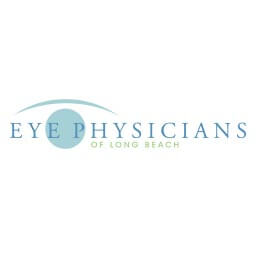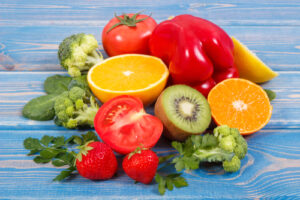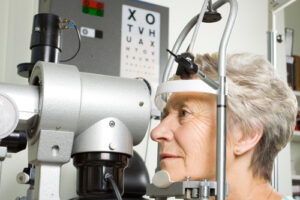Blog post by: Eye Physicians of Long Beach

Cataracts develop naturally with age. They cloud the lens of your eyes, making it opaque and harder to see through. Today, cataracts are the leading cause of blindness worldwide. While there still isn’t a nonsurgical cure for cataracts, studies have revealed that certain foods can help slow this sight-threatening eye disease progression.
Some eye doctors believe that oxidative stress is responsible for the damage of proteins and enzymes in the lens, which leads to cataract formation. Oxidative stress is caused by an imbalance between free radicals, which are atoms that damage cells in your body, and antioxidants that reduce them. If you do not have enough antioxidants to neutralize the free radicals roaming in your body, oxidative stress occurs.
One source of free radicals is unhealthy foods. Some ophthalmologists suggest that eating a diet that’s rich in antioxidants can help delay the progression of cataracts and even reduce your risk of developing cataracts in the first place. Keep reading to learn more about diet and how it can affect cataract development!
Foods to Avoid for Good Vision
If you want good vision, you’ll need to lead a healthy lifestyle. At its core, this includes the basics like exercising, eating enough fruits and vegetables, and making smart decisions about your health. You should also do your best to avoid soft drinks, processed foods, fried foods, and sugary snacks. Eating and consuming these things are all associated with the increased likelihood of cataracts at a younger age.

There’s nothing you can do to guarantee you’ll never develop cataracts because they are part of the aging process. But leading a healthy lifestyle is never a bad thing, especially where your eyes are concerned! Reducing sodium intake is also recommended as studies have shown a high salt intake can make you more prone to developing cataracts.
Avoid highly processed foods, white bread, among other bakery items that contain refined sugars and grains.
Shaping Up Your Diet to Prevent Cataracts

To minimize your risk of cataracts, you should have two servings of fish each week, three servings of whole grains daily, and 5 to 9 servings of vegetables and fruits every day. Below are some of the most effective nutrient sources that can reduce your risk of developing cataracts.
Omega-3 Fatty Acids
Flax seeds are considered one of the best sources of omega-3 fatty acids. Omega-3 fatty acids are a superfood when it comes to keeping your eyes healthy. If your eyes feel dry or irritated, omega-3 fatty acids will provide your eyes with the necessary lubrication that they need.
You can get omega-3 fatty acids from many different kinds of foods like grass-fed beef, fatty fish such as tofu, salmon, sardines, halibut, and cod. Omega-3 fatty acids reduce your chances of developing cataracts and keep them hydrated.
Vitamin C
You knew that vitamin C kept you from getting colds, but it can also help reduce your risk of developing cataracts. Good sources of vitamin C include oranges and guavas. The green or red chili pepper, dark leafy greens, papaya, kiwi broccoli, and bell peppers are also packed with plenty of vitamin C.

Green Tea
The antioxidants found in green tea can protect your eyes from cataracts. Opting for green tea instead of your hot chocolate or coffee can have lasting benefits that go beyond cutting back on your caffeine habit.
Nuts and Seeds
Seeds and nuts have high amounts of vitamin E. Vitamin E is an antioxidant that protects your eyes’ membranes. For example, walnuts contain vitamin E, omega-3 fatty acids, and antioxidants. This is one of the best combinations when it comes to keeping your eyes happy and healthy!
Other choices of nuts and seeds that are good for your eyes include almonds, sunflower seeds, hazelnuts, and peanuts.
Whole Grains
You can boost your eye health and reduce your risk of developing cataracts early on by eating brown rice, quinoa, oatmeal, wheat, rye, sorghum, and oatmeal.

Fruits and Vegetables
Colorful fruits and vegetables have carotenoids that give them their yellow, red, and orange pigments. These foods are consumed raw, but for the most value, you should cook them before eating them. Carotenoids such as beta carotene and vitamin A prevent cataracts and are found in cantaloupes, sweet potatoes, carrots, and pumpkins.
Research shows that the risk of developing age-related cataracts reduces by about 26 percent for every extra 10 mg of carotenoids you add to your diet. Vegetables and fruits have the highest antioxidant capacity. When shopping, choose fruits and vegetables that are different colors. And whenever possible, eat the skins as they’re full of lutein, zeaxanthin, Vitamin A, C, and E. Below are some of the fruits and vegetables that can improve your eye health.
Avocados
Eating avocados is a great way of getting the nutrients you need, including vitamin E and vitamin B6, to prevent or slow current cataracts’ progression.
Broccoli
Broccoli contains two essential nutrients: zeaxanthin and lutein that stop free radicals from damaging your vision.
Carrots
Carrots have many nutrients that can protect your vision. The lutein found in carrots can prevent some of the damage from the sun’s UV light.
A healthy diet full of antioxidants can prevent cataracts. However, no single antioxidant can combat the oxidative stress from free radicals. That is why it’s crucial to eat a variety of foods containing antioxidants.
Although this list isn’t exhaustive, it will help strengthen your eyes and reduce your chances of developing cataracts at a younger age.

Save Your Sight by Going for Routine Eye Exams
Even if you have clear vision right now, one of the best ways to preserve your eyesight is by regularly visiting your ophthalmologist. Routine visits enable your eye care professional to check for signs of cataracts, among other eye conditions.
Early detection can help save your sight. Here at Eye Physicians of Long Beach, our eye doctors specialize in cataract treatment and can ensure you have healthy vision for years to come. Make your eyes a priority! Schedule your cataract screening at Eye Physicians of Long Beach in Long Beach, CA, today!
